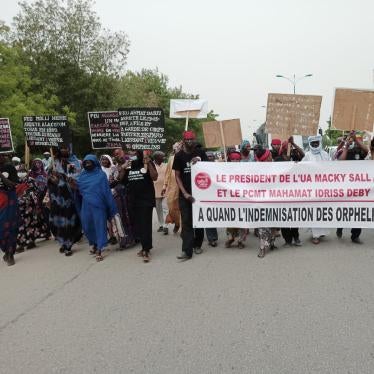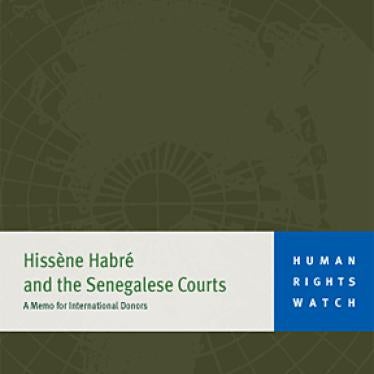In 1988, as Chad cowered under one-party rule, I was arrested by Hissène Habré's political police and thrown into prison together with thousands of other ordinary Chadians. I survived two years of near-starvation, beatings and dengue fever, but dozens of cell-mates died in my arms. From the depths of that madness, I took an oath that if I ever got out, I would fight for justice. My quest is now in the hands of the African Union, whose leaders, meeting at a summit next week, have the chance to send Habré to trial.
When Habré was finally overthrown in 1990, I walked out through the open prison door and started, along with other survivors, to gather evidence of his brutality. Although a truth commission estimated that Habré's regime had killed 40,000 Chadians, the new government kept most of our tormentors in office and never sought Habré's extradition from Senegal, where he was exiled.
But in 2000, inspired by the arrest in London of Chile's former dictator Augusto Pinochet, we flew from Chad to Senegal, with the help of Human Rights Watch, to file suit against Habré. Even we were surprised when a bold young Senegalese judge listened to our testimony. After 10 years we were finally able to tell our horrifying story to a judge, and when he indicted Habré for crimes against humanity, all of Chad celebrated with me.
Unfortunately, politics then entered the picture. The young judge was thrown off the case and Senegal's courts ruled that they had no jurisdiction to try Habré for crimes committed in Chad, even though the UN Convention Against Torture required them to do just that.
We looked elsewhere, but only Belgium would agree to hear our case under its ambitious "universal jurisdiction" law, which allowed its courts to consider charges of large-scale atrocities no matter where they were committed. President Abdoulaye Wade of Senegal promised the United Nations that he would hold Habré in Senegal, and said that "if a country capable of organizing a fair trial - there is talk of Belgium - wants him, I do not foresee any obstacle."
For four years we worked to build the case, now with the support of the Chadian government, which invited the Belgian judge to N'Djamena, Chad's capital, to investigate.
When the judge arrived with a police team, it was as if justice itself had finally reached Chad. Victims lined up at the courthouse to tell their stories. I took the judge into the jail where I was imprisoned. The judge's team photocopied thousands of files kept by Habré's police, uncovered by Human Rights Watch, which detailed how Habré organized the repression of political opponents and listed 1,208 prisoners who died in detention.
In September, after four years spent piecing together the evidence, the Belgian judge indicted Habré for crimes against humanity and asked Senegal for his extradition. But politics intervened again.
Habré's supporters - many bought off by the millions he looted on his way out of Chad - now argued that an African leader should not be sent for trial in Europe. Senegal's courts once again declined to act, and President Wade asked the African Union to recommend where Habré should be tried.
I would also prefer to see Hissène Habré tried in Africa. But Senegal refused to prosecute him when it had the chance to do so, Chad could not guarantee him a fair trial, and no other African country has asked for his extradition. Some have suggested creating an "African tribunal," but that would entail enormous political will, years of delay and spending at least $100 million.
Habré's victims have waited 15 years to find a court to hear our case, and many of the survivors - including two of my closest friends, who filed the case with me in Senegal six years ago - have already died.
Belgium is ready, willing and able to hear the case. That country has a regrettable colonial past, but it had nothing to do with Chad and it has an independent judiciary willing to give us - and Habré - a fair trial. After 15 years, surely Senegal and the African Union must allow us to have our day in court.
(Souleymane Guengueng is the founder and vice-president of the Chadian Association of Victims of Crime and Political Repression.)







